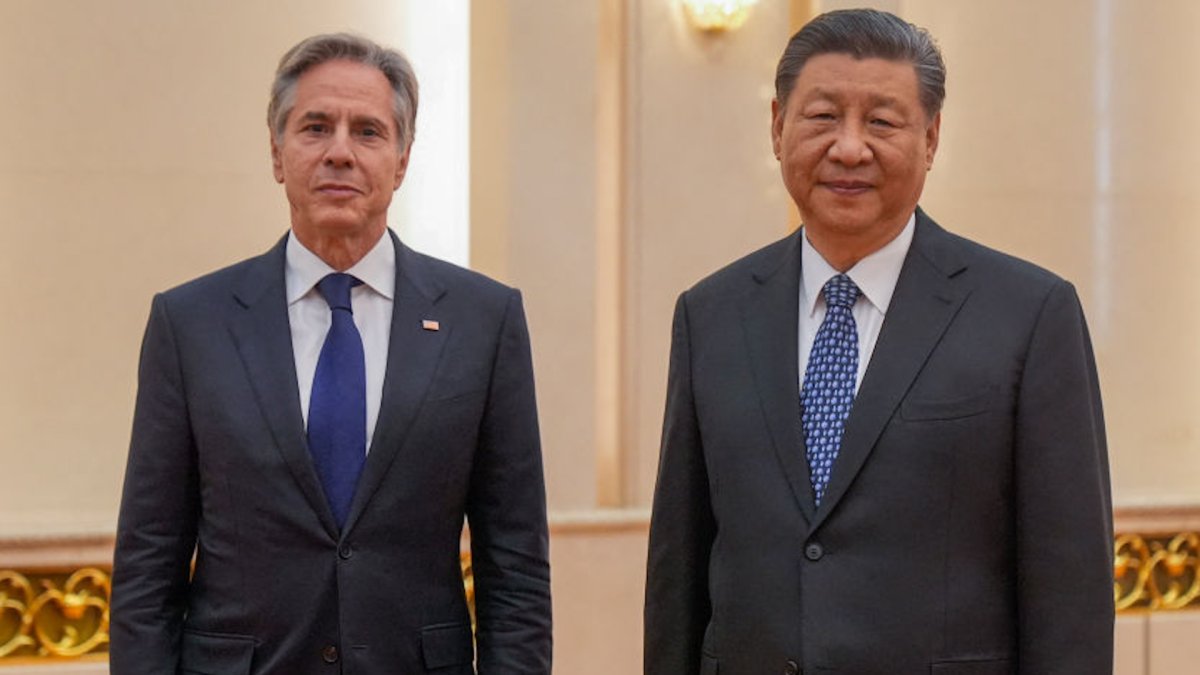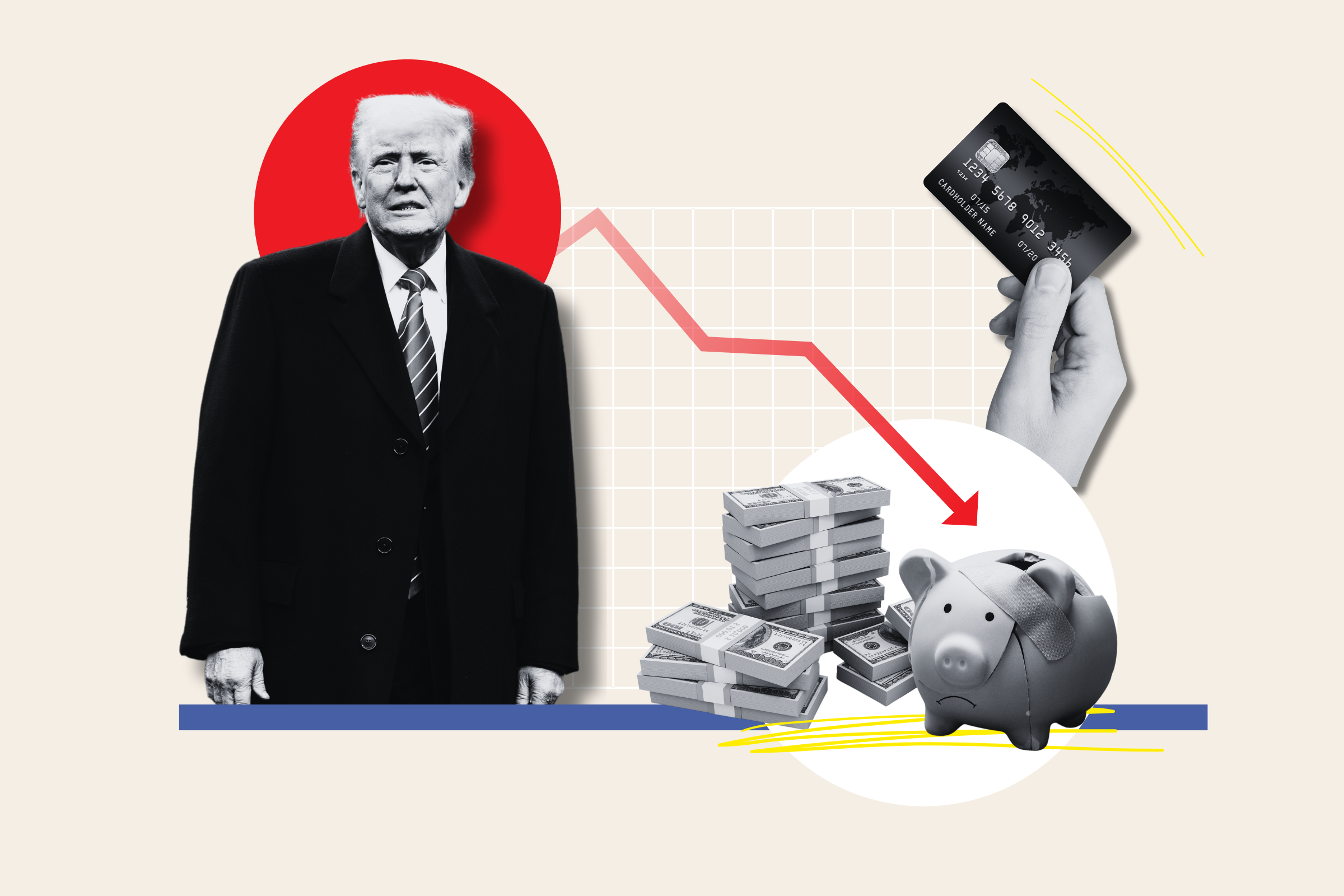Secretary of State Antony Blinken is publicly defending the Biden administration's foreign-policy record, asserting that the U.S. is in a far stronger geopolitical position today than four years ago.
In an op-ed for the November issue of Foreign Affairs magazine, Blinken praised the White House's strategies and approach to countering threats from China and Russia.
"The Biden administration's strategy has put the United States in a much stronger geopolitical position today than it was four years ago," Blinken wrote.
Blinken's defense of the administration's record comes at a time when the U.S. faces more geopolitical challenges than perhaps any moment in recent history, from the war in Ukraine to heightened tensions with China and escalating conflicts in the Middle East.
On the same day Blinken's op-ed was published, Iran launched its largest attack ever against Israel, firing nearly 200 ballistic missiles in response to Israel's assassination of Hezbollah's senior leadership. This attack came ahead of the first anniversary of Hamas' attack on Israel next week.
That attack, which came days after National Security Adviser Jake Sullivan delivered his assessment that the Middle East is "quieter today than it has been in two decades," triggered a regional conflict that threatens to boil over into an all-out war between Israel and Iran.
Critics, particularly from the Republican Party, argue that the Biden administration's approach to foreign deterrence has not adequately countered rising threats from adversaries such as Iran and Russia. Despite that critique, Blinken maintained that the U.S. is in a better position globally than it was under former President Donald Trump.
"President Biden and Vice President Harris pursued a strategy of renewal, pairing historic investments in competitiveness at home with an intensive diplomatic campaign to revitalize partnerships abroad. This twin-pillared strategy, they believed, was the best way to disabuse competitors of their assumptions that the United States was declining and diffident," Blinken wrote.

A key element of Blinken's argument is that the administration's investment in domestic industries, particularly through the CHIPS and Science Act and Inflation Reduction Act, has revitalized American manufacturing and bolstered international confidence in the U.S. economy.
America, he wrote, is now the world's largest recipient of foreign direct investment, with major multinational companies like Samsung and Toyota spending heavily on American semiconductor and electric vehicle production.
Blinken also highlighted the Biden administration's focus on rebuilding alliances. He suggested that when Biden took office, key European partners were determined to gain autonomy from the United States while deepening economic ties with China and Russia.
He pointed to NATO's expansion and increased military cooperation with allies like Japan, South Korea and Australia as key examples of how U.S. leadership has fostered stronger global partnerships.
"The Biden administration's strategy has helped make NATO bigger, stronger, and more united than ever," Blinken wrote, referencing NATO's welcoming of Finland and Sweden.
A New 'Axis of Evil'
Blinken identified China as the most significant long-term competitor to the U.S. and noted that the White House has taken concrete steps to counter Beijing's growing influence. This includes restricting access to advanced U.S. technologies and bolstering alliances in the Indo-Pacific region.

"We undertook determined efforts to protect the United States' most advanced technologies; defend American workers, companies, and communities from unfair economic practices; and push back against China's growing aggression abroad and repression at home," Blinken wrote.
Thom Shanker, Director of the Project for Media and National Security at George Washington University told Newsweek that China's rise has been building for years as both Republicans and Democrats focused on other matters.
"The U.S. national security focus on the War on Terror in Iraq and Afghanistan for the past 20 years allowed China to emerge as a strategic challenge. While U.S. administrations focused on counterterrorism, China quietly grew its influence, creating a pacing challenge for the U.S.," Shanker said.
Regarding Russia, Blinken highlighted the U.S.'s role in rallying NATO and European allies against Moscow's aggression in Ukraine. He said the Biden administration had no "illusions about President Vladimir Putin's revanchist aims or the possibility of a reset."
While Blinken highlighted these alliances as proof of America's strengthened geopolitical position, some have raised concerns about their stability amid so many gathering global crises. Blinken acknowledged the growing partnership between U.S. adversaries such as Russia, Iran, North Korea, and China, referring to this informal coalition as the "new Axis of Evil" — a throwback to a term coined by George W. Bush to refer to Iran, Iraq and North Korea in the aftermath of 9/11.
Still, he expressed optimism that the administration's efforts to bolster alliances and promote multilateral cooperation would effectively counter these emerging threats.
At the core of Blinken's argument was the importance of diplomacy and avoiding unilateral decisions in international affairs. While he did not mention the Trump administration frequently in his piece, he criticized the former president's "unilateral and misguided exit from the Iran nuclear deal."
"If America wants to protect its security and create opportunities for its people, it must stand with those who have a stake in a free, open, secure, and prosperous world and stand up to those who threaten that world," Blinken wrote.
Despite Blinken's positive assessment, Republican leaders have been vocal in their criticism of the Biden administration's foreign policy. House Speaker Mike Johnson and other prominent Republicans have described the administration's approach as "appeasement," particularly in relation to Iran and its growing aggression across the Middle East, from funding the Hamas attack on Oct. 7 to the ongoing attacks from Houthi militants on unarmed cargo ships in the Red Sea.
"Our adversaries are carrying out increasingly dangerous attacks because of Biden and Harris' weak and failed foreign policy," Johnson and other GOP leaders said in a joint statement. They argued that the administration's focus on diplomacy and coalition-building has emboldened adversaries like Iran, which they accuse of taking advantage of perceived U.S. weakness.
As Trump and GOP leaders often claim the former president could have avoided or ended conflicts in regions like Ukraine or the Middle East, Shanker said, the ultimate decisions for peace rest with regional leaders, such as those in Israel and Iran, and for Hezbollah. He added that Biden's response has been appropriate, setting the tone not only for this administration but for the next.
"Under Biden, NATO has become stronger in response to Russia's invasion of Ukraine. Biden's careful declassification of intelligence prior to the invasion helped alert the world to the impending threat, and his diplomacy has unified NATO in ways that caught Putin by surprise," Shanker said.
Reflecting on the criticisms of U.S. foreign policy, Blinken emphasized that his focus has been on policy, not politics.
"As secretary of state, I don't do politics; I do policy. And policy is about choices," he concluded.
Update 10/02/24, 7:26 p.m.: This article has been updated with further comment from Shanker.
fairness meter
About the writer
Jesus is a Newsweek reporter based in New York. Originally from Bogotá, Colombia, his focus is reporting on politics, current ... Read more




